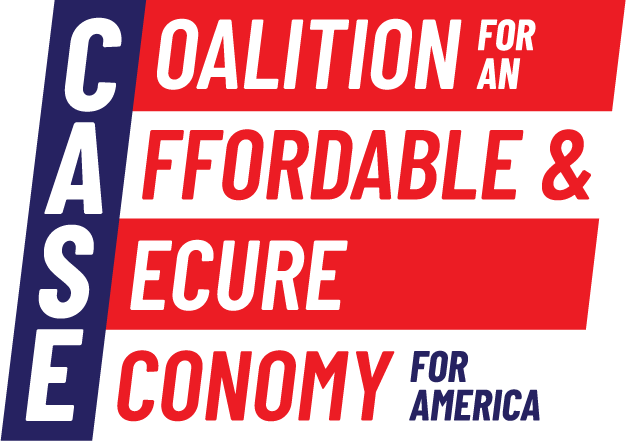“The uncertainty is real. We don’t know how to plan right now. Every day is new.”
Across the country, businesses are feeling the squeeze as new tariffs take effect, driving up costs on essential goods and raw materials. For many, the ripple effects are already visible – slowed production, tighter margins and even the looming threat of empty shelves.
With supply chains under mounting pressure and price volatility becoming the norm, time is running out for business owners who face the difficult decision of raising prices and losing customers or absorbing costs and potentially closing their doors.
From summer clothing to Christmas gifts, tariffs are fundamentally altering supply chains across the nation.
The stakes are high, and without swift action or relief, the consequences could be felt not just in boardrooms, but in storefronts and households nationwide.
What Business Owners And Experts Are Saying Across The Country
Bucky Pescaglia, president, MOPAC Lumber Company:
“There’s so much conversation about ‘it’s short-term pain, if we can just get through this short-term, it’s gonna be better for America in the long-run.’ Well, we’ve already gone through the short-term pain in 2018 and it crushed our industry and we’re having it even worse now.” (KOMU 8 News, 5/2/25)
Torsten Slok, chief economist, Apollo:
“The consequence will be empty shelves in U.S. stores in a few weeks and Covid-like shortages for consumers and for firms using Chinese products as intermediate goods.” (CNBC, 4/28/25)
Justin Bartlett, managing director, Crossroads Fireworks:
“The tariffs are already starting to impact our business and our ability to get fireworks to Americans … Our suppliers right now are stopping all their shipments … We are going to see a shortage and we are going to see a harder and harder time getting fireworks for this celebration. The tariffs are such that they will shut down the whole industry. We’re just at the mercy of massive price increases caused by these tariffs.” (CASE For America)
Eugene Seroka, executive director, Port of Los Angeles:
“We are now beginning to see the flow of cargo to the Port of Los Angeles slow. It’s my prediction that in two weeks’ time, arrivals will drop by 35%.” (CBS News, 4/30/25)
Sonia Lapinsky, partner and managing director, AlixPartners:
“Retailers should be doing anything they can to get as much demand as possible, as soon as possible, because from our perspective, things are going to really fall off a cliff … We’ve been seeing a very skittish customer since about February, March, and it’s only gotten worse as the tariff talk has gotten kind of more constant.” (CNBC, 5/4/25)
Lauren Beitelspacher, professor of marketing, Babson College:
“[Tariffs are] going to impact every business, but I think it’s going to impact [smaller companies] more because they have fewer global options from their supply chain.” (CNBC, 5/4/25)
Timbrel Wallace, retail stores owner in Gettysburg, PA:
“The big concern across the board, I think, is anything coming from China. There are a lot of goods that only come from China. They aren’t made in the United States. We don’t have any other source but to order from China. With the current tariff situation in China, we’re not sure looking forward how we are going to be able to get inventory onto our shelves. That is a big concern right now … There is a strong possibility that a month, two months from now there really are going to be shortages.” (CASE For America)
Chris Erickson, general manager, Crippen Auto:
“Right now, I mean, we can just feel it. The customers are a little uncertain about what that’s [tariffs] going to do. From a business standpoint, we are concerned with what is that supply going to look like on our end. Because we are already low on supply. So hopefully something gets worked out soon.” (CASE For America)
Robin Liss, founder and CEO, Suvie:
“I’m going to run out of appliances. If we don’t [scale up our business], we might not have products for the holidays, which is our main sales season.” (CNBC, 4/2/25)
Hana Abboud, owner, Hana Abboud Bridal:
“As of right now, I’ve seen from the industry multiple manufacturers increase pricing, which means the brides are now seeing their price increase because we can’t eat the full amount of the tariff. There’s no way, we’d all go under.” (The Detroit News, 4/20/25)
Sean Stein, president, U.S.-China Business Council:
“Starting in a couple of weeks, we are just going to start running out of stuff, and if the administration waits to resolve the problem until we have shortages and hoarding, that is just too late.” (NBC News, 4/25/25)
Amy Rutherford, owner, Pippin Toy Company:
“We are seeing pandemic-level crises right now. The uncertainty is real. We don’t know how to plan right now. Every day is new. We don’t know when [a best-selling product that is out of stock due to tariffs] is going to return, and again, we don’t know what it’s going to cost when it returns.” (WISN ABC 12, 4/29/25)

